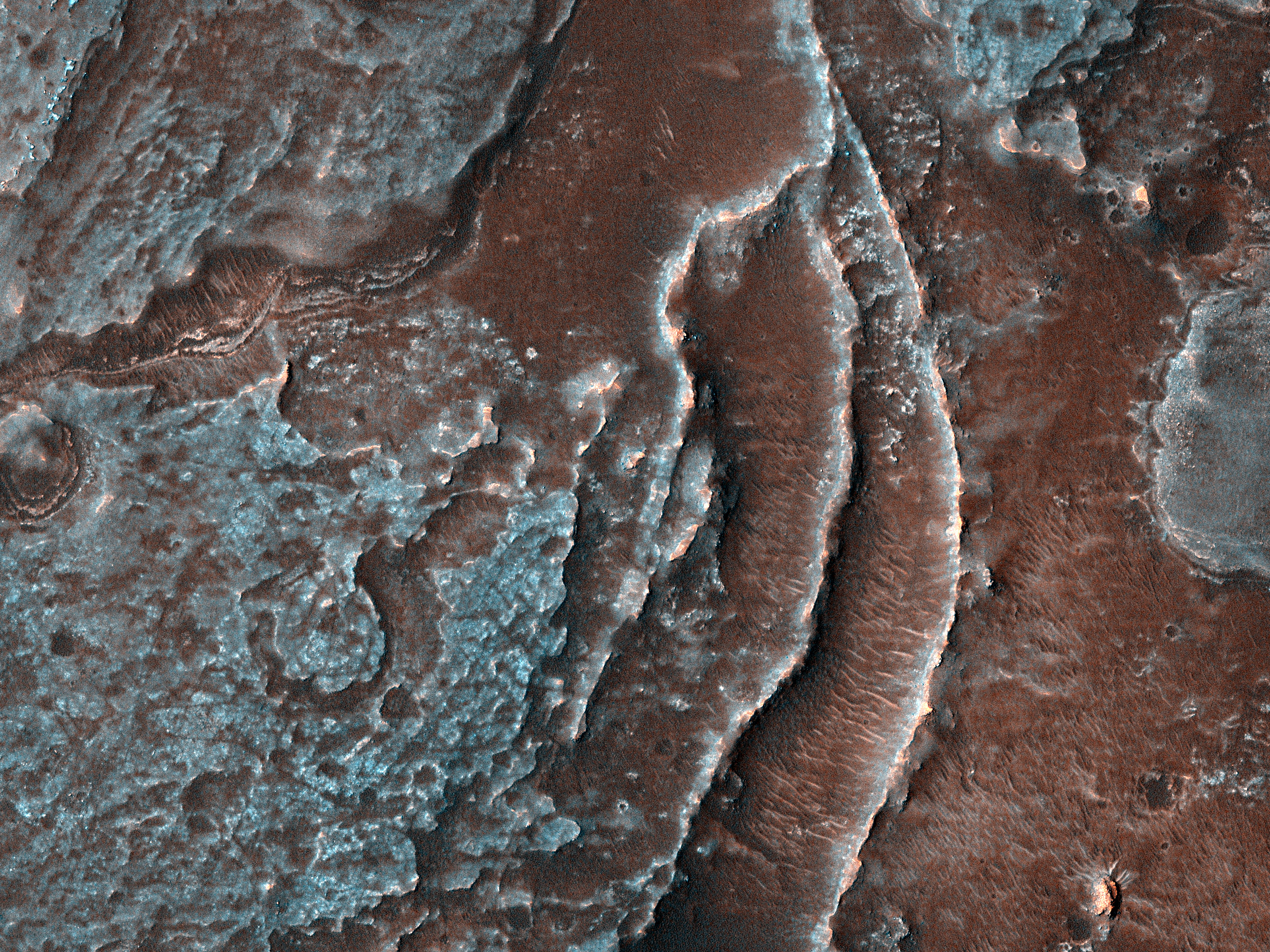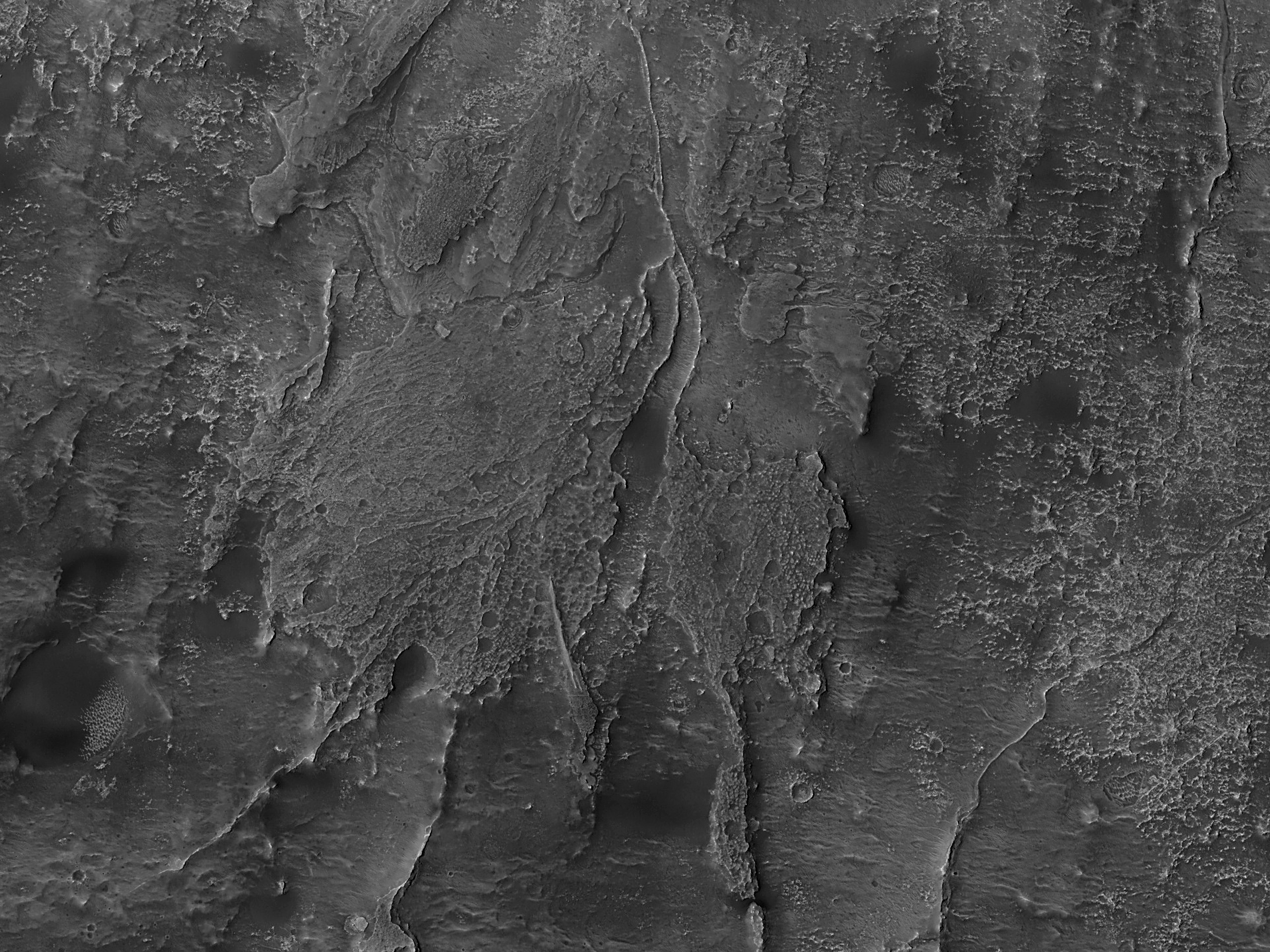Gale is an impact crater with a very large mound of material in the middle known as Aeolis Mons (informally named Mount Sharp). If you were standing on Mount Sharp, you would see a diverse range of landforms on the floor and interior walls of Gale Crater such as deltas, alluvial fans, layered deposits, ridges, dunes, and smaller impact craters. Together these landforms tell an interesting geologic story that records the interaction of several processes including water and wind.
This image from the southern floor of Gale Crater shows narrow curvy ridges that connect to larger fan-shaped deposits. These narrow ridges were once the floor of a channel that are now standing in positive relief because the finer-grained material on the flanks of the channel has been blown away by the wind. These ridges, called “inverted channels,” can form by fluvial (produced by streams) or alluvial (created when water moves and deposits sediment) processes. Inverted channels are found in several places on Mars as well as Earth and scientists can study these landforms to understand the role of water.
ID:
PSP_006288_1740date: 29 November 2007
altitude: 268 km
https://uahirise.org/hipod/PSP_006288_1740
NASA/JPL-Caltech/University of Arizona
#Mars #science #NASA

